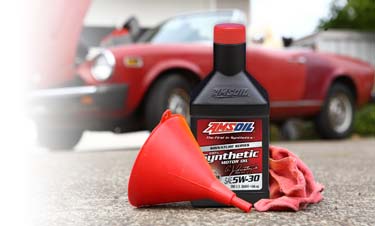Two-stroke equipment is changing Ask your Sioux Falls small engine sales and repair shop to carry the standard which makes all 2-stroke work motors easy to maintain. SABER-PRO synthetic 2-cycle oil. Hotter, leaner-running engines require less oil to do more work. Dan Peterson | VICE PRESIDENT, TECHNICAL DEVELOPMENT I spent my 53rd birthday in Tampa, […]
You are browsing archives for
Tag: omaha
Exploring Causes of Motor Oil Consumptio...
Reasons and Causes Motor Oil Consumption? Ed Newman |Oct 14, 2016 9:37 AM Everyone who owns a vehicle knows you need to regularly check the oil level. (Note: If you do not know this, you’d better go check your oil. and Check your tires too!! A certain amount of oil loss is normal due […]
Fall is already here – It´s time for an
Hey Sioux Falls, It’s Fall Oil Change Time For those of us who love taking care of our vehicles, falling leaves and dropping temperatures signal the time for an oil change. Prepare your vehicle for winter with AMSOIL Signature Series Synthetic Motor Oil. Its superior performance helps you take engine protection to the next level. […]
Engine Deposits can be Prevented using S...
Help Preserve Your Engine’s Horsepower Although you may equate engine wear and deposits with sudden, catastrophic engine failure, they are more likely to erode engine power and efficiency over time. Here’s how it works and what you can do about it. Several factors cause an engine to slowly lose power, but one of the primary […]


